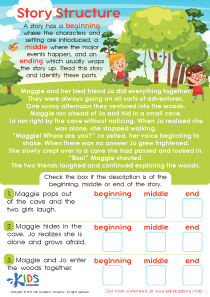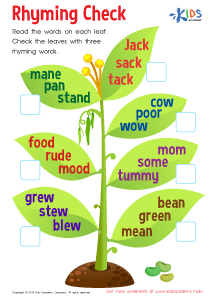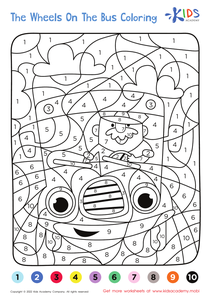Critical thinking skills Grade 2 Building Vocabulary Worksheets
3 filtered results
-
From - To
Enhance your second graders' critical thinking skills with our engaging Building Vocabulary Worksheets! Designed to boost language comprehension, these printable resources encourage students to analyze words, make connections, and explore meanings beyond definitions. Each worksheet features age-appropriate exercises that promote vocabulary expansion while fostering analytical thinking. From word associations to creative contexts, students will develop their ability to think critically and express their ideas confidently. Perfect for classroom use or at-home practice, our worksheets are an excellent way to equip young learners with essential skills for future academic success. Unlock the power of vocabulary today!
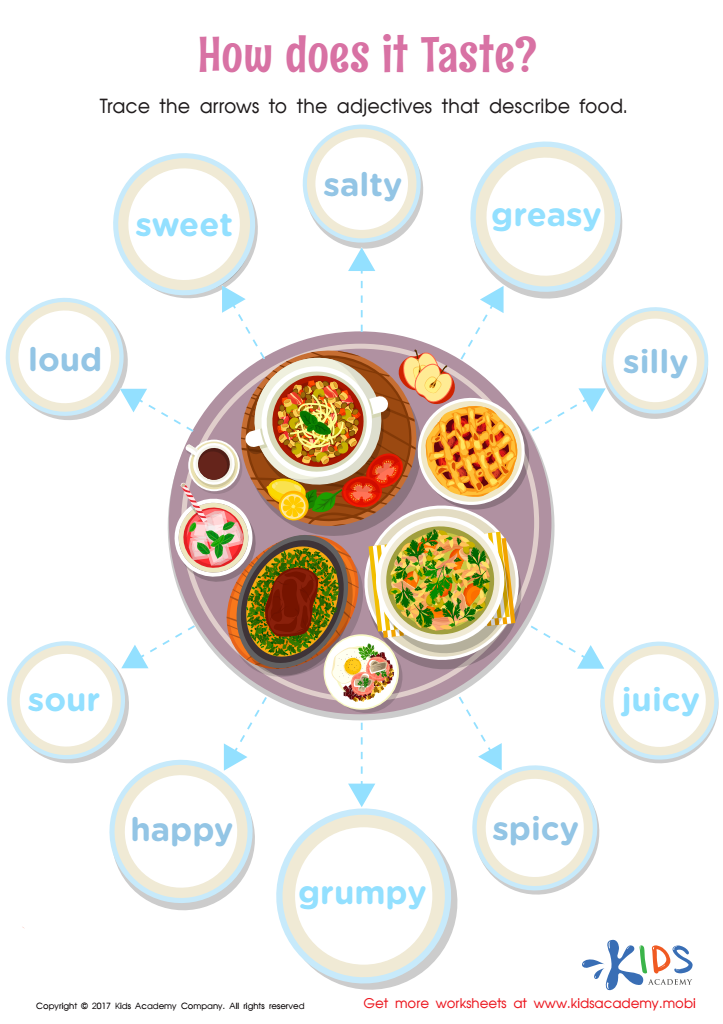

Food Adjectives Worksheet
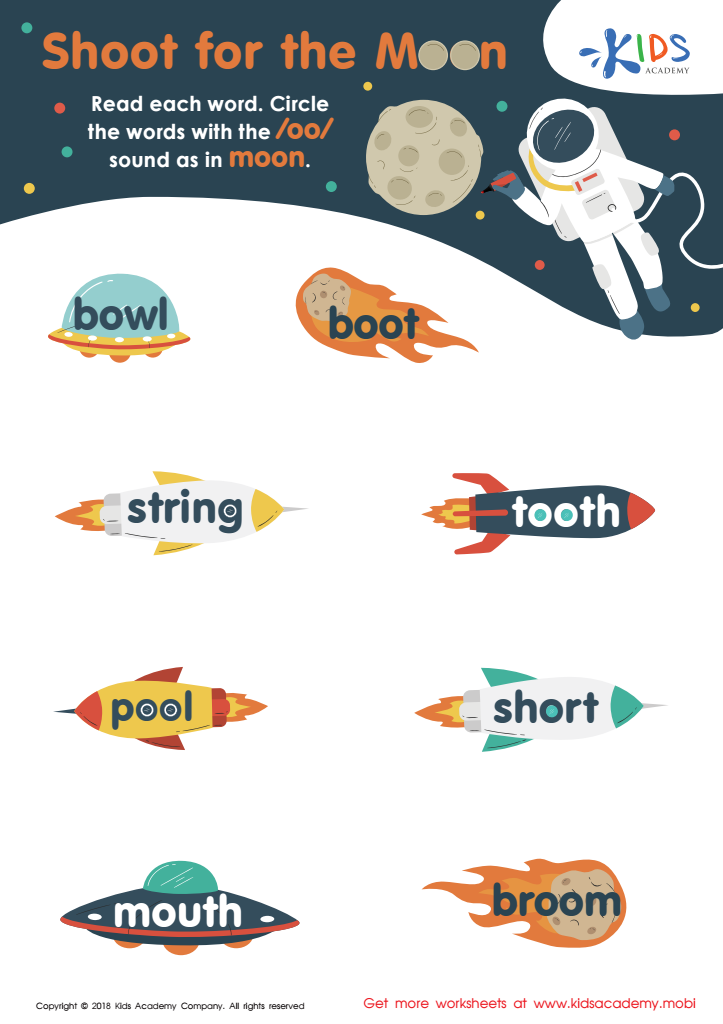

Reading: Shoot for the Moon Worksheet
Critical thinking skills are essential for grade 2 students as they lay the foundation for effective problem-solving and decision-making. Developing these skills at a young age helps children learn to analyze information, evaluate different perspectives, and make informed choices. For parents and teachers, fostering critical thinking in vocabulary building is particularly important.
At this stage, children are expanding their vocabularies, making it crucial to connect words to concepts. By encouraging students to ask questions, reflect on meanings, and relate new vocabulary to their experiences, educators can enhance comprehension and retention. For instance, when learning a new word like "curious," children can discuss what it means, how it feels, and examples from their lives, leading to deeper understanding.
Additionally, engaging in discussions around word usage promotes language articulation and expression. Parents who model critical thinking through conversation also set examples for their children, reinforcing skills learned in school. Ultimately, investing in critical thinking helps children become lifelong learners, prepared to tackle future challenges with confidence and creativity. Both parents and teachers should prioritize these skills to cultivate well-rounded, thoughtful individuals who thrive academically and socially.

 Assign to My Students
Assign to My Students









